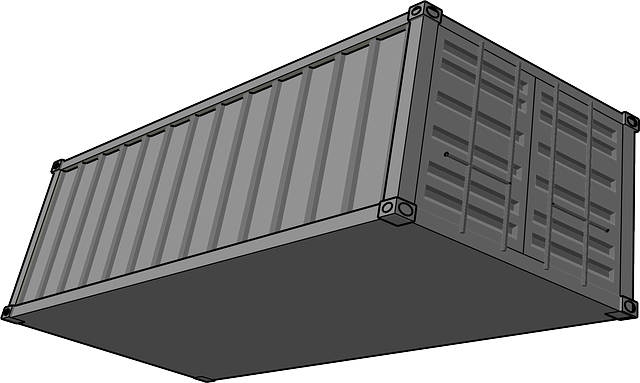Trucking claims present unique challenges due to complex scenarios and high stakes, with issues like inadequate documentation and worker misclassification causing delays and increased costs. Low-cost trucking insurance providers offer tailored solutions through clear communication, accurate documentation, and risk management guidance to streamline claims. Reducing claim costs is a strategic approach, focusing on safe driving practices, regular vehicle maintenance, and technology like telematics to lower accident risk and premiums. Balancing affordability with comprehensive coverage and regularly reviewing policies is crucial for trucking businesses. Long-term strategies involving technology, reward programs, and industry partnerships can drive down insurance costs and foster a culture of responsible driving.
In the competitive world of logistics, managing claims while keeping insurance affordable is a delicate balance for trucking businesses. This article guides you through resolving common issues with trucker’s claims, offering practical strategies to reduce costs without compromising coverage. We explore effective tactics to address underlying problems and present long-term solutions for securing sustainable low-cost trucking insurance. Discover how to navigate the challenges and optimize your insurance strategy for maximum efficiency.
Understanding Common Issues with Trucking Claims

Trucking claims can present unique challenges, often involving complex scenarios and significant financial implications. Common issues include inaccurate or incomplete claim documentation, where drivers or companies might fail to provide all necessary details, leading to delays and increased costs. Another frequent problem is misclassification of workers, which can affect eligibility for certain types of coverage. This is particularly relevant in the trucking industry, where independent contractors and employees may not be properly distinguished.
Low-cost trucking insurance providers understand these challenges and often offer tailored solutions. They emphasize clear communication and accurate documentation to streamline the claims process. Additionally, they might provide guidance on managing risk and compliance to help trucking businesses avoid costly mistakes. By addressing these common issues proactively, these insurers ensure that policyholders receive timely and fair settlements while keeping their low-cost trucking insurance rates manageable.
Strategies to Reduce Claim Costs for Low-Cost Insurance

Reducing claim costs is a strategic approach that can significantly impact the affordability of low-cost trucking insurance. One effective strategy is to promote safe driving practices among policyholders. By implementing driver training programs and incentivizing defensive driving techniques, insurers can lower the risk of accidents and subsequent claims. Additionally, regular vehicle maintenance checks can help prevent breakdowns, reducing the likelihood of costly roadside assistance calls.
Another key tactic involves utilizing technology to monitor driving behavior. Telematics devices can track mileage, driving patterns, and safety compliance, allowing insurers to offer personalized policies and discounts for responsible drivers. Moreover, promoting fuel efficiency and eco-friendly driving habits not only benefits the environment but also contributes to lower operating costs for truckers, ultimately reflecting in more affordable insurance premiums.
Maintaining Coverage While Addressing Underlying Problems

Maintaining coverage is not just about keeping a policy active; it’s about ensuring that your business remains protected while addressing underlying issues. When dealing with claims, one common pitfall is attempting to reduce costs by cutting corners on coverage. However, this can lead to significant risks if not handled carefully. For instance, low-cost trucking insurance might seem appealing initially, but it could result in inadequate protection during a claim, leaving you vulnerable to financial losses.
Instead, focus on finding a balance between affordability and comprehensive coverage. Regularly review your policy to ensure it aligns with your business needs, especially after significant operational changes or events. By addressing the root causes of claims and investing in adequate insurance, trucking businesses can mitigate risks and maintain sustainable operations.
Long-Term Solutions for Sustainable Low-Cost Trucking Insurance

To achieve sustainable low-cost trucking insurance, carriers must look beyond short-term fixes and embrace long-term strategies that address the root causes of elevated premiums. This involves leveraging technology to streamline operations, enhance safety, and reduce claims costs. Telematics, for instance, enables real-time tracking of vehicle and driver behavior, allowing insurers to offer tailored policies based on specific risk profiles. By incentivizing safe driving habits through reward programs, insurance companies can lower accident rates and subsequently reduce claims.
Additionally, fostering strong partnerships with businesses that share a vested interest in road safety can contribute to long-term sustainability. Collaborating with trucking associations, fleet managers, and government bodies to implement industry-wide safety standards and educational programs will create a culture of responsible driving. These collective efforts not only mitigate risks but also promote cost-effective insurance options for carriers committed to operational excellence and driver well-being.
In conclusion, navigating the complexities of claims while securing affordable coverage is paramount for trucking businesses. By understanding common issues, implementing strategic cost-reduction measures, and adopting long-term solutions, operators can achieve a delicate balance between risk management and budget constraints. Embracing proactive approaches to claim resolution ensures that low-cost trucking insurance remains accessible without compromising the integrity of safety and sustainability in this vital industry.
